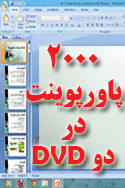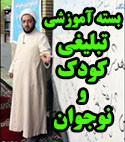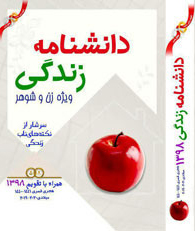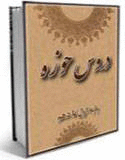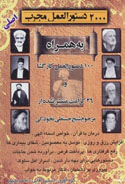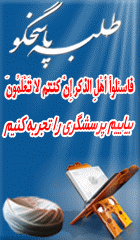Islamic Unity in the Holy Qur’an and Prophet’s Sunnah (2)

On the occasion of Islamic Unity Week that started on 12th Rabi al-Awwal, we present you another interesting featured titled Islamic Unity in the Holy Qur’an and the Sunnah or Behaviour and Practice of Prophet Mohammad (SAWA).
The Islamic Unity Week is the brainchild of the Father of the Islamic Revolution, Imam Khomeini (RA). Following the triumph of the grassroots movement of the Iranian Muslims – of all denominations – the farsighted leader embarked on the novel ideal of bridging the gap between Sunni and Shi’a Muslims, who respectively consider the 12thand 17th of Rabi al-Awwal as the Prophet’s birth anniversary. Ever since the Islamic Unity Week has become an international fixture, inviting Muslims of all denominations to close ranks, and fostering solidarity among the Ummah, especially in the present era of sedition and Takfiri terrorism being promoted by certain reactionary regimes of the Muslim world, affiliated with the US and the Zionist entity. Although Muslims following different schools of jurisprudence have differences of opinionson some secondary religious matters, they enjoy several commonalities such as belief in the One and Only God, belief in Prophet Mohammad (SAWA) as God’s Last Messenger, adherence to the holy Qur’an as the final heavenly scripture,bowing towards the holy Ka’ba in Mecca as the same qibla or focal point of prayers, performing Hajj in the same month of Zi’l-Hijja and fasting in the month of Ramadhan. Now let us cast a glance at Islamic unity within the framework of the holy Qur’an and practice and behaviour of Prophet Mohammad (SAWA).
The holy Quran, in several ayahs has emphasized on unity as a blessing for Muslims. Ayah 103 of Surah Aal-e Imran says:
“Hold fast, all together, to Allah’s cord, and do not be divided [into sects]. And remember Allah’s blessing upon you when you were enemies, then He brought your hearts together, so you became brothers with His blessing. And you were on the brink of a pit of Fire, whereat He saved you from it. Thus does Allah clarify His signs for you so that you may be guided.”
In this ayah God speaks of holding fast to God’s cord and the most evident proof for this cord is the holy Qur’an. The great exegete of the holy Qur’an, AllamahSeyyed Mohammad HussainTabatabaei writes that God’s cord is the Qur’an, and holding firm to it saves Muslims from discord. It means Muslims should adhere to the letter and spirit of the holy Qur’an, and not just paying lip service to it. The concept of holding fast to the holy Qur’an has been likened to the one who fears to cross a dangerous path but by holding to a firm rope he crosses it confidently. In view of this God warns that discord isa pit of fire. The most important fruits of unity for every community is safeguarding of peace, tranquility and security and keeping away from war and bloodshed. In ayah 105 of Surah Ale Imran, in another warning to Muslims, God says:
“Do not be like those who became divided [into sects] and differed after manifest signs had come to them. For such there will be a great punishment.”
The holy Qur’an considers all Muslims brothers of each other and in ayah 10 of Surah Hujurat says:
“The faithful are indeed brothers. Therefore make peace between your brothers and be wary of Allah, so that you may receive [His] mercy.”
This ayah joins Muslims together as brothers in faith and considers making peace which each other as a way for receiving God’s mercy. The holy Qur’an invites even followers of the previously revealed scriptures to unity, calling them “People of the Book. In this regard, in ayah 64 of Surah Ale Imran we read:
“Say, ‘O People of the Book! Come to a word common between us and you: that we will worship no one but Allah, and that we will not ascribe any partner to Him, and that we will not take each other as lords besides Allah.’ But if they turn away, say, ‘Be witnesses that we are Muslims.”
This ayah introduces monotheism as the source of unity and solidarity among various religions and calls on them to unify with each other and set up a safe community far from oppression and transgression. Undoubtedly Muslims as the initial nucleus of this convergence can play an important role.
When members of the society members give up differences and their hearts become close to each other, the enemy cannot harm them. In part of ayah 46 of Surah Anfal, God says:
“And obey Allah and His Prophet, and do not dispute, or you will lose heart and your power will be gone. And be patient; indeed Allah is with the patient.”
God introduces the Prophet as the axis of practical unity for Muslims. This axis includes all deeds and words of the Prophet, who as the history of Islam testifies, prevented discord and created unity among Muslims in order to strengthen the political and social bases of the Ummah. The Prophet after migrating to Medina from Mecca, entered into treaties and social contracts, which are among the most evident ways of fostering unity. The first accord was concluded between the holy Prophet and the tribes of Medina. These treaties called for negation of ethnic and tribal tendencies.
By creating brotherhood among Muslims, the holy Prophet turned the enmity of the days of paganism into blessings and mercy. The holy Quran says in ayah 63 of Surah Anfal:
“And (God) united their hearts. Had you spent all that is in the earth, you could not have united their hearts, but Allah united them together. Indeed He is all-mighty, all-wise.”
The Prophet of Islam strove against social prejudices.According to the Prophet of Islam, trampling the rights of others disrupts peace and security, resulting in hatred and discord.Even in the statements of his last days, the Prophet warned the Ummahagainst discord, saying: O people, your blood and properties are forbidden for each other;beware that every Muslim is the brother of another Muslim and Muslims are brethren to each other. Perhaps his best formula for Islamic Unity is the Hadith Thaqalayn in which the Prophet emphasized:
“O people, I am leaving (behind amongst you) two weighty things, the Book of Allah and my Ahlal-Bayt; hold fast to them and you will never go astray, for the two never part from one another even when they return to me (at the fountain ofkowthar on Judgement Day).
Thus, in view of these undeniable facts, it is incumbent upon Muslims to follow the holy Qur’an and the progeny of the Prophet of Islam.
FK/AS/SS
وبگــــــــــردی طلبۀ پاسخگو
- فایل اعمال و رفتار های خلاف قانون جناب آقای حسن روحانی
- در کنج خانه طلبهها چه میگذرد؟
- سکوت چند ساله مسئولان حوزه در قبال حملات وحشیانه به طلاب!
- می گویند که مملکت مملکت آخوندهاست!!
- یک ماجرای تلخ که خانم ها با تأمل بیشتر بخونند
- جریان های تکفیری موجود در عراق و نحوه شکل گیری آنها
- سیر تکاملی تفکر سلفیه چگونه بوده است؟
- بداء در قرآن و حدیث چگونه مطرح شده است؟
- پیامبر (ص) با مخالفین خود چگونه بر خورد می کرد؟
- سبک زندگی حضرت زهرا سلام الله علیها
- ملاک کرامت و شرافت افراد، انسانیت است یا جنسیت؟
- رنگ و پوشش های رنگی در اسلام
- حجاب، زنان را افسرده میکند و مانع پیشرفت اجتماعی آنهاست!!!
- علوم لدنی معصومین
- مگر ولی فقیه معصوم است که ولایت مطلقه دارد؟
- اگر خدا ازعاقبت ما اطلاع دارد قیامت برای چیست؟
- آیا بجای نماز خوندن، پیانو یا سه تار بزنم؟
- چرا مراسم عزاداري امام حسين(ع) پيش از شهادت ايشان صورت ميگيرد؟
- چرا امام حسين(ع) در كربلا براي رفع تشنگي از خداوند طلب باران نكرد؟
دانــــــلود های مفیـــــــــــــــــــد
- دانلود پاورپوینت شناخت وهابیت و صهیونیسم و ارتباط با همدیگر
- دانلود دو پاورپوینت اجرای عید غدیر خم
- دانلود پاورپوینت احتجاج اميرمؤمنان (ع) به غدير
- پژوهشی در کلام و پیام مقام معظم رهبری پیرامون ماه رمضان
- خطبه شعبانیه و خطبه امیرالمومنین(علیه السلام) پیرامون روزه و ماه رمضان
- دانلود پاورپوینت و pdf تفاوت های زن و مرد
- دانلود جزوه ساعات سعد و نحس(زمان نوشتن دعا)
- تقویم مذهبی شمیم یار 96 مخصوص کامپیوتر
- دانلود نرم افزار «شیعه شناسی»
- دانلود پاورپوینت ساختار خانواده و مسایل آن
- دانلود کتاب دایره المعارف جنسی
- دانلود نکات جذاب دوران عقد
- دانلود کتاب درمان سرد مزاجی و بی میلی جنسی بانوان
- دانلود کتاب حسادت کودکان
- دانلود کتاب درمان خستگی وناتوانی جنسی
- دانلود پاور پوینت اسیب های ازدواج وخانواده
- دانلود پاورپوینت هشت گام برای تحقق رویا به واقعیت
- دانلود پاورپوینت تقویت اراده
- دانلود پاورپوینت موفقیت وروشهای رسیدن به ان
- دانلود پاورپوینت هنر رفتار با افراد دشوار
- دانلود پاورپوینت جملات جالب وجذاب روحیه بخش بزرگان
- دانلود پاورپوینت راههای مقابله ودرمان استرس
- دانلود پاورپوینت نیازهای اساسی کودکان
منبــــرهای مکــــــــــــــــــتوب
- منبر مکتوب: روز عرفه و فرصت ها
- منبر مکتوب: سبک زندگی امام باقر علیه السلام
- منبر مکتوب: سه نیاز مومن (امام جواد علیه السلام)
- سخنرانی سلسله ای و چند جلسه ای مناسبت ماه رمضان
- دانلود 30 جلسه سخنرانی ماه مبارک با موضوع تنها مسیر
- موضوعات پیشنهادی سخنرانی برای محرم
- فضائل حضرت قمر بنی هاشم علیه السلام
- برکات وجود ابا عبدالله علیه السلام بر عالم
- بررسی بُعد اخلاقی،عبادی و عرفانی عاشورا
- آخرين وصيت امام حسين عليه السلام
- اولین علت رویاروی در کربلا؛ دوری از یاد خدا
- هميشه حزن؟ شادي چرا نه؟ - شب دهم محرم
- چرا نفرين ؟ - شب نهم محرم
- نماز ظهر عاشورا - شب هشتم محرم
- فلسفه عزاداری - شب هفتم محرم
- دفاع از دین - شب ششم محرم
- فلسفه حضور خانواده سيد الشهداء - شب پنجم محرم
- علم امام علیه السلام به شهادت - شب چهارم محرم
- فقدان شرایط امر به معروف و نهی از منکر- شب سوم محرم
مناظرات طلبه پاسخگو
جدیدترین های زبان انگلیسی
- Islam and Its Social System
- Duties of Man Towards the People
- Islam Various Systems
- Attributes of The Real Follower of Imams in Their Teachings
- Who is a Real Shia Muslim?
- RIGHTS OF SCHOLARS
- Islam Attacks Slavery 1
- The Advantages of Religion 2
- The Clearest Reason for Free Will
- Sheikh Zakzaky to be released on bail
- Brief History of Religions
- Is It Necessary For Man To Follow A Religion?
- The Advantages of Religion 1
- Who Is Almighty Allah?
- What are the differences between Shia and Sunni Muslims؟
- The Rights Islam Offers to Women
- How I find that Islam does not Oppress Women?
- URGENT MEDICAL TREATMENT FOR SHEIKH ZAKZAKY
- The motto of this year’s book fair is “Reading Is Ability”.
- Fundamental principles of Islam
بیشترین دانلود ها
- دانلود صوتي تکنیک های نزدیکی زن و شوهر (108219)
- دانلود رایگان کتاب خواص سوره های قرآن (55140)
- دانلود پاورپوینت بسیار مفید مهارت های زندگی (37715)
- دانلود پاورپوینت و pdf تفاوت های زن و مرد (34343)
- دانلود كتاب مسائل جنسي و زناشوئي در احاديث (33983)
- دانلود کتاب دایره المعارف جنسی (32399)
- دانلود پاورپوینت های آموزش پیش از ازدواج (30792)
- دانلود بسیار مفید پاورپوینت آئین همسرداری (30214)
- دانلود 110جلد کتاب بحارالانوار علامه مجلسی ره (29867)
- دانلود پاورپوینت آموزشی بررسی رابطه دختر و پسر (29843)
- دانلود كتاب دختران خوب به آسمان می روند دختران بد به همه جا (28750)
- دانلود کتاب درمان سرد مزاجی و بی میلی جنسی بانوان (28554)
- دانلود کتاب آموزش جنسی آقایان (28530)
- دانلود كتاب فرق و مذاهب كلامي استاد رباني گلپايگاني (28460)
- دانلود نکات جذاب دوران عقد (28086)
- دانلود نرم افزار «شیعه شناسی» (26468)
- دانلود کتاب درمان خستگی وناتوانی جنسی (25642)
- دانلود پاورپوینت تقویت اراده (24097)
جدیدترین مطالب سایت
- پاسخ به شبهات ولایت (4784) بازدید
- پاسخ به شبهات ولایت (4582) بازدید
- اذان در جامعه اسلامی نماد چیست ؟ و چرا فقط سه بار در روز تکرار می شود ؟ (3949) بازدید
- باتوجه به عادل بودن خداوند چرا بعضی از انسانها را ناقص الخلقه آفریده است ؟ (4029) بازدید
- ویژگی خاص قرآن چیست که کسی نمی تواند مانند آن را بیاورد ؟ (4314) بازدید
- با توجه به ترک خود ارضایی عوارض آن هنوز در من هست چگونه آن را برطرف کنم ؟ (5667) بازدید
- آیا بدن اخروی مانند بدن مادی است ؟چهره ی واقعی انسان در قیامت چگونه است ؟ (5114) بازدید
- آیا ادعای ملاقات امام زمان (عج) از جانب برخی افراد صحت دارد ؟ (4615) بازدید
- چرا به اصول و قواعد دین اسلام توجه نمی شود و پذیرش آن از سوی پیروان ادیان دیگر سخت است ؟ (5002) بازدید
- فلسفه وجود لباس روحانیت در عصر حاضر چیست ؟ (3603) بازدید
- آیا وظیفه یک روحانی تنها راهنمایی مردم و فعالیت و تدریس در حوزه هاست ؟ (2993) بازدید
- آیا نظریه تناسخ از دیدگاه اسلام پذیرفته شده است ؟ (5362) بازدید
- آیا توصیف بهشت و جهنم در قرآن تمثیل هایی برای درک بهتر آن جهان است ؟ (4946) بازدید
- با توجه به اینکه اسلام کاملترین دین هست چرا ما نسبت به کشور های غیر مسلمان عقب مانده تر هستیم ؟ (6869) بازدید
- نقش امام و رهبر در جامعه اسلامی چیست ؟ و اگر نباشد چه اتفاقی می افتد ؟ (4632) بازدید
پربازدیدترین های سایت
- زنی هستم که میخواهم به شوهرم خیانت کنم!!! (605542)
- آيا زن شوهر دار بخاطر رفع نیاز جنسی اش ميتواند صیغه شود؟ (501177)
- دوست دخترم حامله شده چکار کنم؟ (398716)
- میل جنسی زیادی دارم و به شدت داره منو عذاب می ده (340745)
- دیدن فیلم های مبتذل زن و شوهر برای تحریک شدن جنسی (217936)
- چگونه همسرمان را آماده آميزش جنسي كنم؟+18 (213236)
- حکم شرعی نزدیکی از پشت! (208248)
- خانم هایی که می خواهند طلبه شوند بخوانند!!! (205751)
- زنم رابطه جنسی برقرار نمیکند!!! (199751)
- از تجربه های تلخ و تکان دهنده دختران بخوانید شاید... (172476)
- گناه با محارم خود داشتم! (146484)
- رابطه جنسی دهانی حكم چيست؟ (131081)
- محرمات و مکروهات و مستحبات حائض+حکم ورد به امکان مقدسه (129590)
- به رابطه خانمم با خواهر زاده اش مشکوکم؟ (123508)
- سفارش اسلام در مورد آمیزش صحیح چیست؟ (99138)
- نام كتاب حضرت نوح و حضرت ابراهیم؟ (97173)
- با زنان چشم سبز ازدواج نکنیم؟ (94960)












